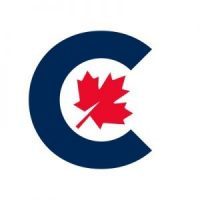May 30, 2016
Ottawa, ON – Official Opposition Deputy Leader, the Hon. Denis Lebel, and Official Opposition Critic for Interprovincial Trade, MP Dan Albas, today unveiled the Official Opposition’s new position on interprovincial trade. Conservatives are calling on the Liberal Government to refer the Comeau ruling to the Supreme Court, so that section 121 of the Constitution can be clarified. The Liberal Government must also act as an intervenor if the New Brunswick Court of Appeal agrees to review the Comeau ruling.
“If the Liberal Government truly supports free trade in Canada, it will refer the Comeau ruling to the Supreme Court, and agree to act as an intervenor now that the Comeau ruling has been appealed,” said Albas. “Given the failure of the Liberal Government to reach a new agreement on interprovincial trade with the provinces and territories, it only makes sense for the Liberals to refer the Comeau ruling to the Supreme Court. The Court should also comment on which products, jurisdictions and types of barriers are covered by the Comeau ruling.”
The Comeau ruling is a landmark court decision in New Brunswick which struck down the province’s alcohol importation limits. In his decision, Judge Ronald LeBlanc dismissed charges against Gerard Comeau under New Brunswick’s Liquor Control Act, saying the law violated section 121 of the constitution. Section 121 is clear: “All Articles of the Growth, Produce, or Manufacture of any one of the Provinces shall, from and after the Union, be admitted free into each of the other Provinces.”
The Comeau ruling could lead to stronger economic growth because freer trade amongst the provinces and territories is a cost effective way to encourage greater job creation and private sector investment. A positive decision by the Supreme Court would also give consumers access to more choice in the marketplace.
“It is time to free the beer and free the Canadian economy,” said Deputy Leader Lebel. Free trade between Canadians is a constitutional right and as Canada’s 150th birthday fast approaches, it is time to finally create a true national economy.”
Estimates about the economic costs resulting from interprovincial trade barriers, vary. However, one report from the Canadian Federation of Independent Business estimates internal trade barriers cost the Canadian economy $14 billion annually.
“Canadian businesses do not want the government telling them who they can, and cannot do business with. Creating freer trade in Canada is not a partisan issue; it is a right vs. wrong issue,” concluded Albas.



